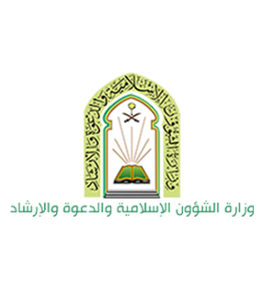Hajar (as) was the second wife of Prophet Ibrahim (as). He and his first wife, Sarah (as), had been unable to have children for many years, as they carried the message of Allah through the land of Shaam (Greater Syria).
When Ibrahim (as) and Sarah (as) were both very old, they would eventually blessed with a son named Prophet Ishaq (as). In fact, the news of this birth would be brought to Sarah (as) by angels [The Noble Qur’an, 11:71]! But the couple had no idea that this baby lay in their future, and Sarah (as) did not want Ibrahim (as) to grow old without children.
So, while they were living in Egypt, she suggested that Ibrahim (as) should marry her servant Hajar (as). Thus, Ibrahim (as) was finally gifted with his first child: Prophet Ismail (as).
The Messenger of Allah (saw) said, ′If Allah wills good for someone, He afflicts them with trials. [Bukhari]
Allah tests the people whom He loves, and Ibrahim (as) was so beloved to Allah that he was nicknamed Khalil, or intimate friend. Allah had already sent him many tests: his father’s rejection of him, his people’s persecution of him, the test of being displaced and the difficulty of not having children.

Now, Ibrahim (as) would be tested with his beloved and long-awaited child – and Hajar (as) would also experience this immense test.
The story of how Ibrahim (as) left Hajar (as) in the desert is well-known, but it is emotional every time we hear it! It is truly astonishing what both of them were willing to do for Allah’s sake.
According to Tafsir Ibn Kathir, Ibrahim (as) traveled to Bakkah (known today as Makkah), which was the site of the Ka’bah. At the time of the Prophet (saw), Makkah was flourishing; the Quraish were the custodians of the Ka’bah, respected throughout Arabia, and they grew prosperous through the trade of their winter and summer caravans. But when Ibrahim (as) brought his wife and son there, Makkah was an empty desert. No one had settled there, nor was there any water.
Ibn Abbas (RA) narrated, ’He (Ibrahim) made them sit over there (near the Ka’bah) and placed near them a leather bag containing some dates, and a small water-skin containing some water, and he set out homeward. Ismail’s mother followed him saying, “O Ibrahim! Where are you going, leaving us in this valley where there is no person whose company we may enjoy, nor is there anything (to enjoy)?” She repeated that to him many times, but he did not look back at her. Then she asked him, ”Has Allah ordered you to do it?” He said, “Yes”. She said, ”Then He will not neglect us“, and returned, while Ibrahim proceeded onwards…′ [Tafsir Ibn Kathir]
SubhanAllah, it is impossible to imagine both the strength of Ibrahim (as) in walking away and the absolute trust of Hajar (as) when she realized it was a command from Allah. She did not hesitate for a second in surrendering to His plan. Without any doubt that He would take care of them, she turned and walked back to her spot next to the Ka’bah, to a pouch of dates and a few drinks of water, and sat down beside her baby, completely certain that Allah would never abandon her.
Allah says, ′And whoever puts their trust in Allah, then He will suffice him′ [The Noble Qur’an, 65:3] – and the Messenger of Allah (saw) said, ’If you were to rely upon Allah with reliance due to Him, He would provide for you just as He provides for the birds. They go out in the morning with empty stomachs and return full’. [Tirmidhi]
Hajar (as) truly believed that Allah was sufficient for her and that He would provide for her, just as He provides for birds. She knew that, although she and Ismail (as) appeared to be alone in the desert, Allah was actually close by.

So what happened after Ibrahim (as) left Hajar (as)?
Ibn Abbas (RA) narrated, ’Ismail’s mother went on suckling Ismail and drinking from the water. When the water in the water skin had all been used up, she became thirsty and her child also became thirsty. She started looking at him tossing in agony – and she left him, for she could not endure looking at him. She found that the mountain of As-Safa was the nearest mountain to her on that land. [Tafsir Ibn Kathir]
Ibn Abbas (RA) continued, ’She stood on it and started looking at the valley keenly so that she might see somebody, but she could not see anybody. Then she descended from As-Safa and when she reached the valley, she tucked up her robe and ran in the valley like a person in distress and trouble, until she crossed the valley and reached the Al-Marwa mountain, where she stood and started looking, expecting to see somebody, but she could not see anybody. [Tafsir Ibn Kathir]
Hajar (as) ran between Safa and Marwa seven times, and each time she searched the desert, expecting to see somebody. SubhanAllah, despite being in the midst of an unsettled and uncultivated desert, did not lose hope that Allah would send her help.
The bond between mother and child is one of the strongest ties Allah has created. Hajar (as) could not even bear to look at Ismail (as) when he was thirsty, and we cannot imagine the pain she must have felt. Equally, it is impossible to imagine holding onto hope in that situation, and firmly believing that Allah would not neglect them.
But Hajar (as) continued to run between the two mountains, believing her situation would change. It was an act of trust so powerful that the Ummah of Muhammad (saw) commemorates it to this day, every year at Hajj.
The Miracle of Zamzam
When Hajar (as) had run between the mountains seven times, she heard a voice as she was standing on Marwa. She forced herself to be quiet and she heard the voice again. So she called out, ’You have made me hear your voice, have you got something to help me?′
After calling out, she saw an angel at the place where the Zamzam water well now stands. It was Angel Jibril (as), and he was digging the earth with either his heel or his wing. Hajar (as) was amazed to see water flowing out of the earth! She raced down to the valley and started pushing the earth around the water to make a basin, and then she filled up her water skin with her hands. As she scooped up the water, it continued to flow, so she said ‘Zome, zome’, which meant ‘Stop, stop’ – as she was worried the water would run out!
Angel Jibril (as) said to her, ’Don’t be afraid of being neglected, for this is the House of Allah which will be built by this boy and his father, and Allah never neglects his people′ [Tafsir Ibn Kathir]. He thus reminded her that, no matter how long they remained in the desert, she could continue to have confidence that Allah would provide for her, just as He had sent her water when she had thought the ground was barren.
SubhanAllah, the Zamzam well continues to provide water to millions of pilgrims every year.



















